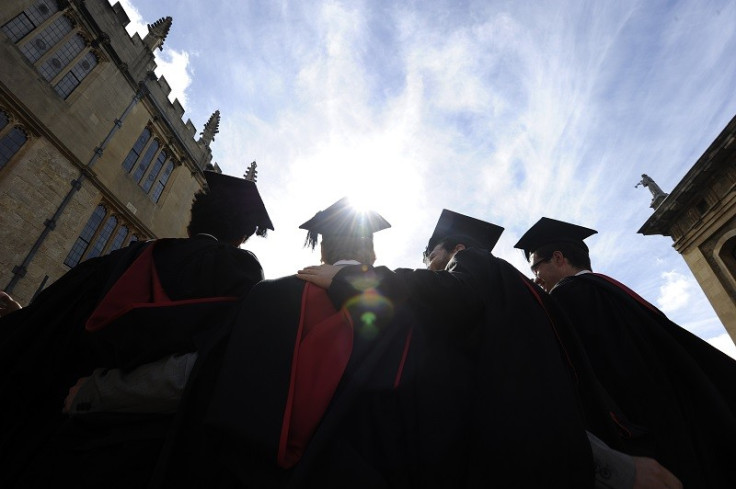Student loans to become more expensive as inflation begins to bite
Interest rates for students who have taken out of a loan after September 2012 will raise from 4.6% to 6.1%.

Britain's rising inflation rate could hit the pockets of students and graduates, as the interest rates on their loans is set to surge by a third to 6.1%.
The pound has lost approximately 16% of its value in the 10 months since the 23 June's Brexit referendum, driving inflation to the highest rate since 2014.
Data released on 11 April by the Office for National Statistics showed inflation rose 2.3% in March, remaining above the Bank of England's 2% target for the second consecutive month as households' budgets face being squeezed even further.
Student loans, however, are tied to the inflation rate as calculated by the retail price index (RPI), which tends to be higher than the rate measured by the consumer price index.
New starters and current students currently pay a 4.6% rate on their loans, which is calculated at 2016 March's 1.6% RPI rate plus 3% depending on earnings – although it is locked at 3% during a student's academic career.
However, RPI surged to 3.1% last month, meaning that, from September 2017, students who took out their student loan on or after 1 September 2012 will be charged between 3.1% and 6.1% on their loans, depending on income.
The latter figure represents a 24-fold increase on the official benchmark interest rate set by the Bank of England (BoE), which was lowered to a historic 0.25% in August and has remained unchanged ever since.
In comparison, rates on some personal loans from high street banks start at 2.8%, while five-year mortgages are available from 1.29%.
"I was expecting an increase to student loan interest this year, but this is worse than expected," said Jake Butler, finance expert at advice website Save the Student.
"It really demonstrates that the interest on loans under the new system is far too high and should be reassessed."
Meanwhile, those who have started university between 1998 and 2011 will not be affected by the change and will continue to be charged the current 1.25% interest. According to the website, this is because the rate is based on whichever is the lowest out of RPI or the BoE base rate plus 1%.
However, those who took out their student loans before 1998, will see their rate rise from 1.6% to 3.1%, as their repayment schemes are based only on the RPI figure.
Butler added that students who have started university after September 2012 will not begin repaying their loans until they are earning over £21,000 a year, meaning the interest rates increase could simply add up to the "massive amounts" of accumulated student loan debt "that the government will never see".
"Unless you start off with a graduate salary of higher than £30,000, it's unlikely you will pay off your full loan and interest before it's wiped after 30 years anyway," he added.
© Copyright IBTimes 2025. All rights reserved.






















